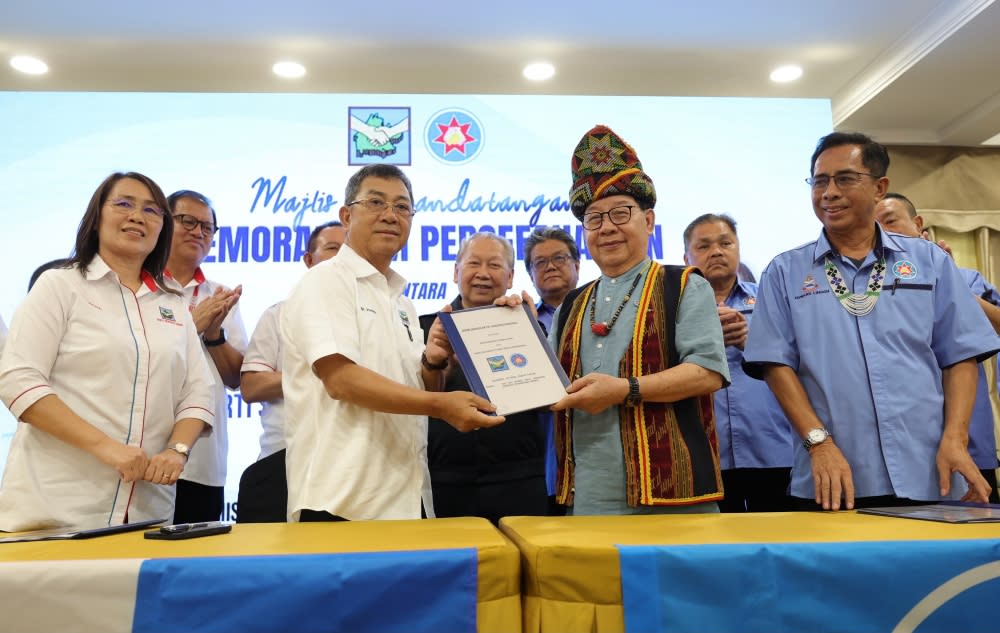Star-PBS bank on new partnership for clout to secure more seats

KOTA KINABALU, April 18 — Parti Bersatu Sabah (PBS) and Parti Solidariti Tanah Airku (Star) hope the formalisation of their alliance will give two of the state’s biggest native parties more leverage to negotiate for seats in coming elections.
The parties’ leaders said the pact, a step towards a more united Kadazan Dusun Murut and Rungus (colloquially abbreviated to KDMR) native community, will help their aim to win more than their current 13 seats for the Gabungan Rakyat Sabah (GRS) government.
However, the formula for the seat sharing has yet to be discussed at length by the joint committee tasked with studying the seats and identifying the best party for the job.
“It is still too early to talk about that. Being in GRS, we have to know there are certain seats being held by PGRS. But the 13 seats are non negotiable. The rest we can discuss,” said PBS acting president Datuk Joachim Gunsalam after the MoU signing ceremony today.
PGRS is Parti Gabungan Rakyat Sabah, one of the eight components within GRS. They may also be contesting the state election alongside current partner Pakatan Harapan, which has four more parties.
The MoU signed outlined the various ways the two parties would work together, including forming of a joint leadership council that would decide the direction of the collaboration, joint training, sharing of media, leadership training, and the set up of the election study committee.
The pact is regarded as historic to some as it marks the third time native parties have attempted to come together and repair the split since 1994 when many of the native leaders left PBS, then the dominant sole KDMR party, to eventually form government with Barisan Nasional.
In the two other occasions, the most recent before the 2018 general election, the pacts did not last, often dissipating over political differences and power tussles.
Star president Datuk Seri Jeffrey Kitingan said there was an understanding that the pact could only be broken by mutual agreement.
“So that we don’t become sour about it. So it is done on the basis that we both have to agree,” he said, adding that want it to be positive.
Gunsalam said that in the “misompuru” pact — PBS, Upko and PBRS — had successfully navigated the seat sharing and campaigning but fell apart during the post election hung assembly melee.
“The post election period is where it gets tricky. But most likely, we will all be contesting on a single logo, the GRS coalition. So this will reduce the possibility of conflict as neither parties can simply jump,” he said.
When asked about a time frame towards a merger, the two parties said there was no set goal but agreed that it was their ultimate aim, as per the people’s wishes.
“We are here now but we don’t want to rush. We have to learn how to work together before we can merge. That is the ultimate objective but we cannot rush it or else it won’t happen.
“Through this MoU we will learn about each other. The joint council will be our joint heads, but the bodies and tails are still independent,” said Kitingan.



